
Becoming StoneX

100 Years of Entrepreneurial Spirit, Customer Focus and Value Creation
We don't often take the time to celebrate business milestones. But as we enter 2024, we are presented with the rare opportunity to commemorate two significant anniversaries for our company.
The most obvious is the centennial of our namesake legacy business, Saul Stone & Company. Saul Stone began his career in 1924, pushing an egg cart through the streets of Chicago. Soon after, Saul Stone & Company became one of the Chicago Mercantile Exchange's first clearing members.
It's incredible to consider that a startup with such humble beginnings is now the cornerstone of a Fortune 100 company with operations in six continents.
However, this would not be the case if our current management team had not taken control of International Assets in a deal that closed in 2003 — our second milestone. The fallout from the dot-com bubble lingered in the markets, but we were a different kind of startup. Perhaps a throwback to Saul’s time.
We built our company on a simple idea: that if we treated our customers fairly, took a disciplined approach to risk, and compounded our capital every year, we would end up with a significant business after 20 years or so.
Today, we still consider ourselves a startup. Perhaps because our founding principles have not changed. In fact, you’re likely to recognize them in almost every story and quote that follows. One startup after another — joining together, lending its customer-focused, entrepreneurial approach to what has become The StoneX DNA.
From Vision to Vanguard
“I've always had an entrepreneurial streak in me. But I figured I had better go somewhere and learn something first before starting a business.
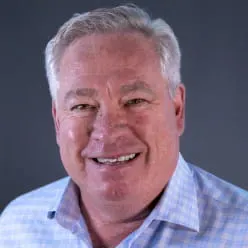
Chief Executive Officer
So, at 25, I went into investment banking at Standard Bank and was given the incredible opportunity to help build businesses from scratch in London and then New York, which really appealed to my entrepreneurial streak,” says Sean O'Connor, CEO of StoneX Group, recalling his early career path that ultimately led him to building the company we know today.

Sean cut his teeth in the ultra-competitive financial hubs of London and New York. For Sean, this wasn't just a job; it was a masterclass in entrepreneurship, laying the groundwork for a future industry leader. The story of StoneX involves individuals across the world with diverse perspectives. But what brings it all together — and ultimately made StoneX the successful business it is today—is the vision, drive, and firm belief in the power of entrepreneurial thinking that embody its people.
It's a story that spans continents and decades, filled with strategic innovations, some daring moves, and a never-ending desire to push the boundaries of what's possible in the financial markets.
Back to the Beginning
But StoneX didn't begin in London, or even New York — where its headquarters is situated today. In fact, it all started 800 miles west, back in 1924 on the streets of Chicago's Fulton Street Market district.
“Growing up near Chicago, I was always drawn to the financial markets.”
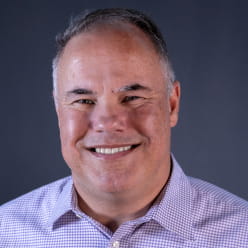
Chief Financial Officer
These are the words of Bill Dunaway, Chief Financial Officer of StoneX. As the financial derivatives capital of the world and home of the CBOT, CBOE, and CME, it's no wonder that many of its residents were inevitably drawn to a career in finance.
“It was an exciting, fast-paced environment,” he says, painting a picture of a culture where adaptability and a ‘do whatever it takes’ attitude were the keys to success.
Bill was deeply influenced by the legacy of Saul Stone & Co., a firm known for its customer-first culture and rich history. “They had a glass case in the lobby filled with collectible eggs, including a Fabergé,” he recalls, a nod to Saul Stone's early days of going door-to-door with his egg cart through the streets of Chicago.
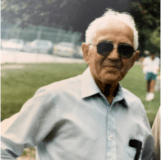
Saul Stone established his company in Chicago in 1924, initially as a farm products wholesaler. Saul's ambition and drive propelled his company to the forefront of the financial industry, especially in futures contract hedging, risk management and listed derivatives — which are all still offered by StoneX today in 2023.
“Saul Stone & Co. evolved into what is now the StoneX Clearing & Execution Services division,” Bill says.
Industry veterans like Vincent Angelico and Greg Greves now lead this team, which has been a cornerstone of the StoneX business model since its inception.
Bill's statement captures the journey of a company that has constantly adapted, grown, and led while remaining true to the principles and culture that began in the heart of Chicago.
Boots on the Ground
If you're a StoneX employee, chances are you'll hear the phrase ‘boots on the ground’ mentioned by one of your colleagues within the first week. It's built into the company's DNA. Dave Smoldt, President of our Commodities Division is just one example of someone at StoneX who embodies this mentality.
“I grew up on a farm,” Dave recollects, painting a picture of his childhood, when listening to futures prices on the radio was as much a part of his upbringing as the fields he worked with his family. His internship at Farmers Commodities Corporation (FCC), a regional grain cooperative in 1984, was a watershed moment not only for him, but also for the company which would become a pivotal part of the history of StoneX.
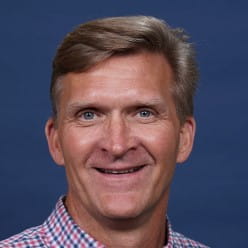
President Commodities Division
FCC embodied a culture that valued hard work and personal relationships, which Dave wholeheartedly embraced. “At FCC, you started at the bottom, demonstrated your ability to learn the business, and accepted the job if it was offered to you.”
This approach fostered a thorough understanding of the industry as well as a dedication to customer service, both of which have remained central to the philosophy of StoneX.
“We look to hire people with deep connections to trade,” says Dave.

His hiring philosophy prioritizes practical experience, market knowledge and customer-centric values. And maybe sometimes, that even means getting your hands dirty with the very commodities your clients are trading.
A Strategic Blueprint
The merger of Saul Stone & Co. and FCC was a landmark moment in the evolution of what would become StoneX. A shared vision of expanding risk management services and gaining critical access to major commodity exchanges drove this strategic move. “FCC had recently expanded its risk management offering to include energy and livestock and was looking to gain clearing access to the Chicago Mercantile Exchange and the New York exchanges,” reflects Bill Dunaway.

The combination of Saul Stone & Co.'s expertise and clearing memberships, as well as FCC's clients, resulted in a potent synergy. “The capabilities were complementary, we were both committed to customer service, and the cultures were a good fit,” Bill adds, emphasizing the two companies' seamless integration.
This merger also served as a model for future acquisitions. “These traits became the de facto blueprint for subsequent deals for FCStone and then later StoneX. And in nearly all of them, the people ended up being the best part.”
Bill's reflection emphasizes that cultural fit and human capital are critical components of a successful acquisition — something that Sean and the rest of the executive team at StoneX would pay close attention to every time they acquired a new business.
Bold Moves
The story of Sean O'Connor, who decided to venture into uncharted territory at the age of 40, captures the entrepreneurial spirit that has long embodied StoneX. “I felt like it was ‘now or never’ for starting my own company,” Sean recalls.
His decision to leave the bank and co-found a broker-dealer with his colleague Scott Branch was a risk that would shape their financial careers. Scott was initially skeptical. “We had zero chance for success,” he said. But that talk only fueled Sean's determination to succeed. “I like to remind him of this from time to time,” laughs Sean.

This determination led them to purchase a controlling stake in the Orlando-based broker-dealer International Assets Holding Corporation, which was made possible by both men putting everything they had on the line and with investments from pioneers such as John Radziwill, now Chairman of the Board at StoneX.
“I met Sean and Scott for the first time in the lobby of the Palace Hotel in New York in 2002,” John recalls of the meeting that marked the beginning of a significant partnership.
Despite his initial lack of familiarity with the broker-dealer industry, Sean and Scott's strategy and credibility convinced him of the potential. “They had a sound business plan, and my friend assured me that I could trust them.”
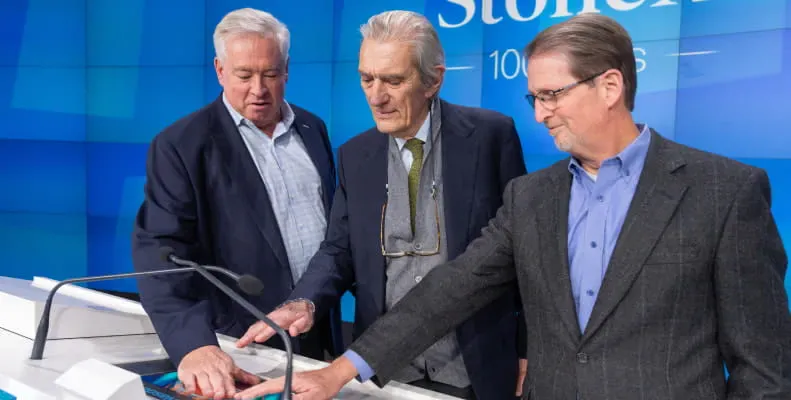
This defining moment resulted in John's investment. Combined with additional funds, Sean and Scott were finally able to acquire control of International Assets. But this wasn't just a financial decision — it was a strategic one that would determine the future of the entire business.
“It was the first in a long line of acquisitions we've done together,” John says. And a “long line” is no exaggeration. In just the last 10 years, StoneX has made over 20 strategic acquisitions at attractive valuations that have added significant value to the company.
Assuming Responsibility
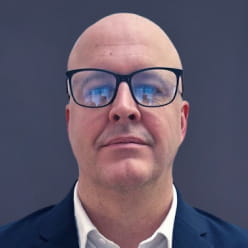
Director/EVP Head - BD Division
International Assets was not a new company, having been founded in 1981 and listed on the Nasdaq in 1994. Charles Lyon, currently Director/EVP Head of StoneX's Broker Dealer Division, began working there in 1999, as a market maker in foreign equities (ADRs).
“The founder was a brilliant guy — he trusted us to make decisions and take responsibility,” Charles remembers.
That culture of independence suited Charles, who came from a family business and understood what it meant to be a self-starter. “You reaped the rewards of your decisions. And you suffered the consequences.”

It's no coincidence that Sean and Scott wished to foster this same culture when they took control of International Assets in 2003 — and it's still ingrained in the StoneX DNA to this day. “We give our people the freedom to use their talents and expertise to make decisions and succeed — but in exchange for accountability.”
“That mindset is what really binds us together, even across all of the different companies and cultures we've worked with over the years.”
Strategically Niche
The company was based out of Orlando, Florida - a far cry from the avenues of Manhattan. It was a public firm, facing the new complexities of Sarbanes-Oxley and rapidly running out of capital.
Despite these obstacles, Sean saw potential: “The business existed, which meant we could start hiring, it had a license and a bank account. So, we moved forward with our due diligence.”
Upon arrival in Orlando, Sean discovered a small yet intriguing trading business at International Assets, led by Charles. “There were only five people, specializing in market making international stocks,” Sean recalls. This modest operation, once a private wealth management firm's trading desk, presented a unique opportunity.

“It was niche, and we knew we had to start niche.” This small business, initially underestimated, transformed into StoneX's core equity trading franchise, growing its revenue to nearly $300 million. Incredibly, 30% of all ADRs traded today in the US pass through this team.
Sean came to realize that their status as a regulated, public company came with some key advantages. “Being public was very valuable. It made it easier to get trading lines with larger banks and conferred a status that was comforting to clients.”
He fondly remembers the early days: “Our first day there was crazy. There were five guys sitting at old-fashioned desks - all of them facing the wall with their backs to each other. The first thing we did was build a proper trading desk.” This simple yet significant change was symbolic of the transformation to come.
Under Charles's leadership, this once-small business became a powerhouse, financing much of StoneX's growth.
Exotic Destination
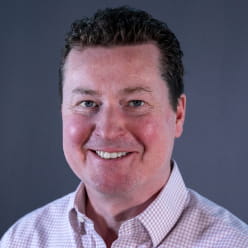
Chief Executive Officer - EMEA
With Sean now at the helm of International Assets, the new team's first acquisition came in the form of Global Currencies Limited, a UK-based foreign exchange company specializing in deliverable exotic spot FX.
“Back then, it was incredibly difficult to work with non-profits. We were small and unregulated, but our advantage was our vast global network of local banking counterparties,” says Philip Smith, CEO of StoneX EMEA.
This constraint prompted a novel strategy: “Our approach was to ‘pay first and assume all risk... And only when the organizations had received confirmation that funds had been delivered, would they pay us.” While this approach helped to build trust, it also hampered the company's growth potential.
Recognizing the need for regulation and scale, Global Currencies sought a strategic partnership. “I realized that we needed to be regulated... which is difficult when dealing in spot FX. Our solution was to partner with a larger, listed and regulated company,” Philip explains. This regulation requirement made International Assets an ideal partner.
The growth that followed exceeded all expectations. “I believed that having access to a bigger balance sheet... would lead to the next big surge of growth for the business. And that's exactly what happened.”
The Midas Touch
“When I heard that Sean had launched a startup, I remember being intrigued,” says Barry Canham, former Global Head of Metals at StoneX, reminiscing about his early days at Standard Bank.
Barry joined not long after Sean had taken control of International Assets and was initially based in the heart of Dubai's Gold Souk: “We were smack-bang in the middle of everything. It was incredible.”
“I don't think Sean and Scott knew how they were going to provide the capital to fund our business, but we had incredible connections in the wholesale gold market,” Barry says, noting that both networking and industry relationships were critical in their early success.
Barry fondly remembers the pride in expanding to global locations, even with modest beginnings. “I know Sean enjoyed the prestige of being able to say that he had expanded into London and Dubai,” he chuckles, reflecting on the small but significant steps that marked the early stages of their global expansion.
“Barry is an old school guy who had never been overly familiar with technology,” says Sean.

Against all odds, Barry ended up becoming a technological pioneer, aggressively automating his business, “going from 11 traders picking up phones and executing orders, to three.”
The impact was profound, with volumes exploding. “The technology he built is still what we use today,” Sean notes. The launch of the PMXecute platform — which Barry was instrumental in developing — revolutionized the gold market, becoming one of its most active venues.
Prior to PMXecute coming on to the scene in 2017, the gold market had been very traditional. “Pen and paper, picking up the phone to do business, and Barry led the charge in changing that.”
The Transformational Merger
The leadership of International Assets saw an opportunity for strategic expansion in the explosive financial landscape of 2008. Sean O'Connor describes the treacherous climate: “Early in 2008, we began to worry a lot about the stability of the financial system.”
Amid this turmoil, FCStone, a Kansas City-based commodity risk management firm, caught their attention. “This was a fantastic franchise selling for pennies on the dollar. Its market cap had been destroyed, and we were watching from the side-lines,” Sean recalls.
Despite initial difficulties in gaining an audience with FCStone due to the high level of interest from other parties, Sean persisted. “When we eventually gained access to their data room,” he says, “we could see that their collapse was triggered by extreme market conditions,” prompting him to make an offer. This decision, made amid uncertainty about the financial system's very stability, was a gamble for Sean. “It was difficult to close a deal back then... I'd go to bed not knowing if the banks were going to be open in the morning.”

Nonetheless, this gamble was a calculated risk that paid off in spades. “In many ways, we took advantage of the situation. After all, they were five times our size. However, we delivered on our promise and looking back, this was our transformational transaction, our turning point.” A new company, INTL FCStone, was born.
Risk On
“The people may change, the product names may change, but many of the models and calculations behind how we manage risk remains the same. I think that's pretty unique, and special,” says Mark Maurer, Chief Risk Officer at StoneX.
StoneX (still INTL FCStone at the time) acquired Hanley Group Capital, a leader in exchange-traded agricultural options, market-making, complex OTC structured products and cutting-edge trading and risk management technology in 2010. Mark Maurer had joined Hanley two years prior as their head of risk.
Those who remain of the original Hanley team at StoneX have made a lasting impact on the company. And coincidentally enough, Hanley Group had their own ‘boots on the ground’ mentality.
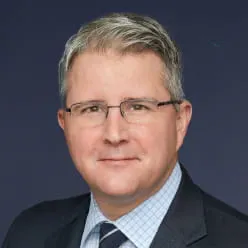
Chief Risk Officer
“Hanley's value was the proprietary knowledge that we had put together for developing risk systems and managing exotic options. It represented years of tangible knowledge in that workspace. I would get my hands dirty — the trade desk would get their hands dirty, trying to understand how these models worked.”
Mark remembers how Hanley ran a flat organization with no hierarchy.
“Anybody could go to the boss, say what needed to be said, add value and make a difference.”

He continues, “That's even more so the case at StoneX. We want everybody to be working for the same purpose, not held back by political layers. All leadership have open doors to everybody. That culture comes directly from Sean. I was lucky enough to have that culture bred into me at Hanley and now I have it even better at StoneX.”
Java… Script
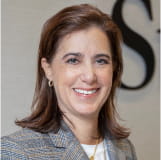
Global Head of Market Intelligence & Commercial Data
CoffeeNetwork, the predecessor to StoneX Market Intelligence, began in the mid-1990s as an innovative idea using a brand-new invention at the time — the internet. Eileen Stein, Global Head of Market Intelligence, recalls its beginnings.
“When I was a senior trader at Hencorp, Albert Scalla (now Senior Vice President of Trading at StoneX) and I would scour the internet each day for coffee market news. We'd print out every story, staple the stories into packets, and put the packets on every trader's desk for the next morning.”
Before long, Eileen's brother Oscar Schaps (now StoneX Head of Latin America) started posting the packets online so that the traders — and their clients — could access all the relevant market info quickly, easily, and in one place. Thus, CoffeeNetwork was born.

“The premise was simple,” Eileen says. “The more our traders and customers knew at the outset of their conversations, the more productive those conversations would be. We've based today's Market Intelligence offering on that same premise.”
In 2011, INTL FCStone bought CoffeeNetwork from Hencorp. Today, Market Intelligence is a testament to this vision. Clients can now access comprehensive market data and analysis across a wide range of asset classes that StoneX trades, and our brokers, traders and analysts can add their unique commentary to drive the conversation and help our users make better decisions.
“Drive conversations, advance strategies, enhance outcomes. That's the formula we've used to grow our user base from 600 to 70,000.”
Heavy Metal
INTL FCStone made a pivotal move the same year it bought CoffeeNetwork when it also acquired Ambrian Commodities and MF Global’s market-leading base metals business in quick succession. This strategic decision to move into metals reshaped the company’s market presence. Kevin Tuohy, Co-Head of the StoneX Base Metals Group, remembers the critical moments: “Over Thanksgiving weekend 2011, INTL FCStone bought the metals business of MF Global from the estate administrator.”
“The real value of the MF metals business was the team itself,” Kevin stresses, emphasizing efforts to maintain team integrity in the face of a competitive environment. Despite initial brand recognition challenges, the team was convinced of INTL FCStone’s potential with Sean and the board actively involved.

Director - Base Metals
The new team's logistical integration at Moor House was chaotic to say the least. “It really was like Ellis Island in 1885. We had queues of people, and we were there with a clipboard asking their name, directing them to different parts of the office,” remembers Philip Smith. But nevertheless, they got the job done. This quick action was critical in filling the market void left by MF Global's demise.
“If we had not bought Ambrian, we could not have done the MF Global deal. It's that simple,” said Philip. “Ambrian was a member of the LME, and that purchase transformed us from a non-clearing to a Category 2 clearing member overnight.”
And with MF Global's metals business acquired, the company quickly moved into Category 1. This move not only helped to stabilize the market, but it also propelled INTL FCStone's brand to the forefront of the global metals trading arena.
Gaining Traction
In 2012, StoneX acquired TRX Futures, a London-based clearing firm for commercial coffee and cocoa customers, as well as energy and financial products. With its own platform and existing flow, the deal offered a direct route into the energy, softs and agricultural markets in the UK and Europe.
That business not only makes a substantial contribution to revenue today, but its acquisition also represented an important milestone in the globalization of StoneX.
Philip Smith notes, “Our logic is to see which products can be put into different locations. We have grown organically over the past fifteen years, but we are happy to leapfrog when the opportunity presents itself. That is precisely what TRX did for us. We've had very few underwhelming acquisitions. Each has accelerated our expansion.”
TRX was joined shortly afterwards by the highly regarded grains team from Jefferies Bache.
The seven-person team that made the switch included Brett Phillpott, StoneX EMEA Head of Exchange Traded Futures and Options. “We established StoneX's reputation in EMEA with our stable, long-term clientele. In just three months, we onboarded 70 clients - a record that still stands today. StoneX gained an experienced and profitable team operating in the European Agricultural and Energy sectors.”

Echoing the values that resonated across the entire company, Brett placed a client-first culture at the top of his priority list when deciding on a new home for his team.
“The culture (at Jefferies Bache) was similar to StoneX, which is why we felt it was the best place to move our business. It has proved to be the right decision. A core feature of our business is the importance of putting the client first. If we didn't do that, then there is no longevity in the relationship. StoneX also champions a high-touch client first approach, which is why things have worked out so well.”
Embracing Change
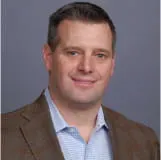
CEO and President - StoneX Commodity Solutions
“After 14 years working for the big banks, it was time to make a change.”
Brent Grecian always wanted to move into the commodities sector. In 2015, he finally got his chance, joining INTL FCStone to manage their Merchant Services division, now called StoneX Commodity Solutions.
“Our core value proposition was centered on assisting clients in managing their commodity supply chains, particularly in the procurement of feed for animals and fats & oils for biorefineries. Our services expanded to include a range of commodities like cotton, coffee, and cocoa, along with innovative commodity finance offerings.”
As a legacy FCStone business unit, Commodity Solutions was grown and developed organically. For Brent, as President & CEO of the division, the mission was clear — to scale the business and build a comprehensive platform for all aspects of the commodity supply chain, spanning sourcing, logistics, hedging, supply, and working capital.
Today, the StoneX Commodity Solutions team services clients across the globe with all aspects of their commodity supply chains as an integral part of one of the largest commodity brokers in the US.

When it comes to the people at StoneX, Brent describes them as innovative self-starters. “The culture at StoneX has always been entrepreneurial and creative. We develop creative solutions to client problems. We've embraced data and technology to deliver our services with insightful transparency - that's how we add value and generate income.”
Cleared for Takeoff
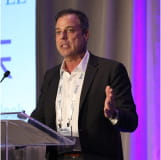
Managing Director - Correspondent Clearing
Over a decade ago, nobody would have thought that a casual conversation at a Securities Trader Association conference would lay the groundwork for a major acquisition.
Not long after that first meeting, First American Capital and Trading founder and CEO, Steven zum Tobel, was sitting down with Charles Lyon.
“First American had a rather unique business model,” Steven explains. “We were providing financial institutions with tri-party securities clearing and execution services and had carved out a niche for working with firms in Latin America.”
INTL FCStone appealed to First American, not only because it was financially sound, but also because it had a very favorable clearing agreement with a well-known international clearing firm. “We felt they would not only improve our profitability but would help us attract new international clients and develop cross-selling opportunities,” says Steven.
However, when the deal with INTL FCStone closed, they had a problem on their hands. The existing clearing firm had started to become less than cooperative, prompting Charles Lyon to buy one instead.
Steven, now Managing Director of Correspondent Clearing at StoneX remembers, “By 2016, Charles had discovered Sterne Agee, a firm that had been around since 1901 but was in a difficult position. He bought it at an attractive price, handed it to us and let us run with it.”

Charles remembers how he “quickly came to recognize that the most valuable asset that we were acquiring in First American was their experienced team. When problems arose, we took our time to find the right solution and Sterne Agee turned out to be a strategically important acquisition that led to our first foray into an entirely new sector.”
The results speak for themselves — the StoneX Correspondent Clearing team now provides access to execution, securities clearing and custody of securities products, complemented by advanced technology and best-in-class support to clients worldwide.
Wealth of Opportunity
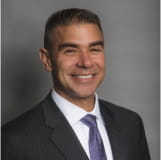
CEO and President - StoneX Wealth Management
While the acquisition of Sterne Agee initially focused on its clearing capabilities, it paved the way for the formation of StoneX Wealth Management.
Before being purchased by INTL FCStone, Sterne Agee was sold to Stifel Financial, a self-clearing broker-dealer that targeted Sterne primarily for their private wealth management business. When INTL FCStone made contact, Stifel put together a deal that included Sterne's clearing firm, registered investment advisor and independent broker-dealer.
“We were the largest client of the clearing business... so it was a good deal,” says Jay Carter, CEO and President at StoneX Wealth Management.
This acquisition represented a departure from INTL FCStone's previous business model, requiring a careful assessment of culture and compatibility.
“In time we figured out that just as INTL focused on providing a high-touch service to underrepresented clients — we were doing the same thing in our own lane,” Jay states. “By the time that we were sold by Stifel, we were probably one of the last regional boutiques. We've been able to keep that culture and energy. And that's why our advisors like us.”

Charles Lyon and Sean O'Connor's leadership was instrumental in developing this new division, while preserving their distinct culture. “Charles asked me what we needed to make a great company,” Jay recalls. “They made no attempt to cut anything. Rather, they invested in us.”
This approach is what made this acquisition, and many others to follow, a resounding success — a laser focus on fostering growth, without sacrificing the business's core strengths.
A True Bond
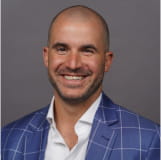
Global Head of Fixed Income
“At the time G.X. Clarke was acquired, we were highly regarded in the industry and brought with us not only expertise and new capabilities for the company, but also deep relationships with over 700 institutional clients,” says Anthony Di Ciollo, Global Head of Fixed Income at StoneX.
G.X. Clarke & Co. was a FINRA member and SEC registered institutional dealer in federal agency, mortgage-backed securities, and US Treasuries. In 2015, INTL FCStone purchased G.X. Clarke in a deal that marked the beginning of the company's institutional fixed income trading business.
Prior to the acquisition, INTL FCStone had a minor presence in emerging market debt and municipal securities.
For G.X. Clarke, the acquisition provided the ability to continue to serve their client base with a wider range of products, backed by the infrastructure of INTL FCStone.
According to Philip Smith, the G.X. Clarke acquisition was nothing short of transformational. “It brought fixed income into our securities business, which was previously predominantly equities-based. If you look at our fixed income business today, it is hugely successful, and one of the largest divisions we have from a revenue perspective. That just did not exist prior to G.X. Clarke.”
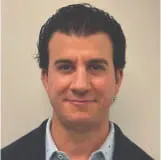
Global Head of Fixed Income Sales
But revenue isn't the only thing that G.X. Clarke has contributed to StoneX. Robert Laforte, StoneX Global Head of Fixed Income Sales, was also part of the team that transitioned over.
“In the classic David vs. Goliath scenario, our team brought a mentality of competitiveness that allowed us to go head-to-head with larger, more capitalized competitors. We took pride in our commitment to provide liquidity to clients, even when other big banks hesitated. Our steadfast strategy endures to today and contributes to the exceptional growth and durable relationships we have sustained over the last 20 years.”
Cultural Synergy
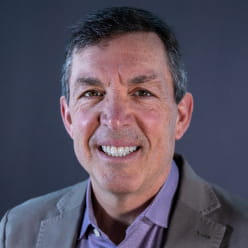
CEO - FX and Retail
The acquisition of GAIN Capital in 2020, which owned iconic retail brands FOREX.com and City Index, was a defining moment in the evolution of StoneX, both in terms of adding an important client segment to the portfolio and rebranding the company name from INTL FCStone to StoneX.
Glenn Stevens, CEO of the StoneX Retail Division, considers the journey, drawing parallels between the two companies: “The history of StoneX is like a river - streams merging to form something powerful. GAIN and StoneX have enough similarities in construction and culture for me to believe that us eventually coming together was no accident.”
He also emphasizes the significance of culture in successful acquisitions.
“There are so many examples of bad acquisitions driven solely by economics, with no regard for the cultural aspects of the transaction. The figures may look good on paper, but if every meeting, interaction, and email requires ten times the effort, value will never be extracted.”

While the merger of two public companies made for a challenging acquisition process, it was supported by a thorough understanding of each company's unique strengths. Glenn's decision to stay on after the acquisition was motivated by a sense of responsibility and a belief in the cultural fit between GAIN and StoneX.
Similar to the Sterne Agee story, Glenn's thoughts on the integration process highlight the significance of cultural compatibility in corporate acquisitions.
“The people of StoneX are what make StoneX what it is. The more I learn about StoneX, the more I appreciate what I am now a part of.”
Entrepreneurial Fibers
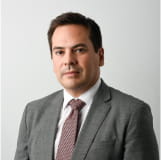
CEO CDI
“I started my career at FCStone Brazil in 2008, developing the cotton brokerage and consulting team,” Ariel Coelho recalls, CEO of Cotton Distributors Inc., a physical cotton trading business that was acquired by StoneX last year.
“I built strong relationships with colleagues and customers.”
Ariel attributes the success to the “entrepreneurial culture, quick access to upper management, and openness to new ideas” of StoneX.
The essence of StoneX, as Ariel describes it, is in treating each business venture with the personal touch of a family-owned company, but with the backing of corporate support. “When it comes to treating their employees well, StoneX in unmatched.”
In 2014, Ariel tackled a new challenge with CDI-Cotton Distributors Inc, bringing his expertise to the Brazilian subsidiary of the Swiss cotton merchant. The objective: “to grow our sourcing of Brazilian cotton by staying closer to our suppliers and building long-term partnerships,” much like the ‘boots on the ground’ motto at StoneX.

The culmination of Ariel's experiences came in 2022, when he had an opportunity to integrate the strengths of both businesses. With the support of former colleagues at StoneX Brazil, Ariel was able to bring his vision to life.
“Today, we offer embedded derivatives, physical contracts, consulting, and execution,” he says proudly, describing it as an ‘IRMP+’ approach — a reference to StoneX's Integrated Risk Management Program.
With the acquisition being a major success, Ariel sees a bright future ahead. “We're now extending into coffee,” he says, “Who knows where the future may take us!”
Closing Remarks from Sean O’Connor
In this collection of stories recalling how we came to be the company we are today, the story of consistent, long-term value creation for our shareholders remains the most compelling.
The long line of acquisitions and partnerships that form our 100-year heritage have come to us through various channels, but for nearly all of them, the philosophy and the criteria remained the same:
We look for opportunities that require minimal leverage, accrete immediately to earnings and return on equity, and expand our client footprint. This disciplined approach has enabled the company to grow from a handful of enterprising ex-bankers with less than $10 million on hand to a Fortune 100 company with a market capitalization of over $2 billion.
We also look for opportunities with companies whose culture and mindset match what we’ve carefully cultivated over the years here at StoneX. None of this would be possible without the hard work, dedication, creativity, and radical ambition of our most valuable asset — our people. Our results are proof of this shared ethos.

